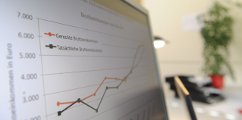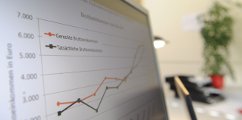Project A5
- Lohmann, Henning, Prof. Dr.
- Head of Project A5
- Tork, Jennifer
- Research associate Project A5
This project studies the determinants and effects of educational poverty from an international comparative perspective. It views educational poverty as a central concept in the contemporary welfare-state debate around intersections between social policy and education policy. Specifically, it addresses the following questions:
- How can educational poverty be defined, measured, and described? Although different approaches are available, they have seldom been applied to conduct comparative analyses from an international perspective. As part of the project, these approaches will be examined and compared.
- How can the emergence of educational poverty be explained? Here, educational poverty is viewed as one specific aspect of educational inequality. The study investigates how the relationship between the heterogeneity of individual characteristics and patterns of unequal access to education vary across different institutional contexts.
- What are the effects of educational poverty? The project studies the degree to which the educationally disadvantaged are affected by unemployment, poor positions on the labor market, and low pay. It also asks whether national differences in the frequency of these effects can be attributed to differences in institutional framing conditions.
The project combines a broad-based comparison between nations with a more detailed, longitudinal, nation-based analysis. The institutional framing conditions are mapped by means of a specially developed macro database. Together with micro data from the International Adult Literacy Survey (IALS), this will serve as the basis for multilevel empirical analyses of the determinants and effects of educational poverty. For Germany, more detailed longitudinal analyses will be carried out using data from the German Socio-Economic Panel Study (SOEP).
15 Publications
Ferger F (2015) SFB 882 Working Paper Series; 49.
Bielefeld: DFG Research Center (SFB) 882 From Heterogeneities to Inequalities.
Lohmann H, Ferger F (2014) SFB 882 Working Paper Series; 26.
Bielefeld: DFG Research Center (SFB) 882 From Heterogeneities to Inequalities.
Spiess CK, Kreyenfeld M, Lohmann H (2013)
In: Bildungskontexte. Strukturelle Voraussetzungen und Ursachen ungleicher Bildungschancen. Becker R, Schulz A (Eds); Wiesbaden: VS Verlag: 145-171.
Jungbauer-Gans M, Lohmann H, Spieß CK (2012)
Kölner Zeitschrift für Soziologie und Sozialpsychologie (Sonderheft 52/2012: Soziologische Bildungsforschung, hrsg. von Rolf Becker and Heike Solga): 64-85.
Bratti M, Cappellari L, Groh-Samberg O, Lohmann H (2012)
In: From parents to children. The intergenerational transmission of advantage. Ermisch J, Jäntti M, Smeeding TM (Eds); 13, New York: Russell Sage Foundation: 311-344.
Ferger F (2012)
In: Legitimation und Protest. Dieter B, Maria J, Peter Oliver L (Eds); Wiesbaden: Harrassowitz Verlag: 139-151.
Ferger F (2011) Explorations of the Far Right; 2.
Stuttgart: ibidem.
Lohmann H (2011)
Journal of European Social Policy 21(1): 37-54.
Lohmann H, Witzke S (2011) DIW Data Documentation 58.
Berlin: DIW.
Lohmann H (2010)
Kölner Zeitschrift für Soziologie und Sozialpsychologie 62(1): 1-30.
Lohmann H, Groh-Samberg O (2010)
Zeitschrift für Soziologie 39(6): 470-492.
Lohmann H, Spieß CK, Groh-Samberg O, Schupp J (2009)
Zeitschrift für Erziehungswissenschaft 12(2): 252-280.
Lohmann H (2009)
European Sociological Review 25(4): 489-504.
Lohmann H (2009)
In: International vergleichende Sozialforschung. Ansätze und Messkonzepte unter den Bedingungen der Globalisierung. Pfau-Effinger B, Sakac Magdalenic S, Wolf C (Eds); Wiesbaden: VS Verlag: 93-128.
Lohmann H, Peter FH, Rostgaard T, Spieß CK (2009) OECD Social, Employment and Migration Working Papers.
Paris: OECD Publishing.












